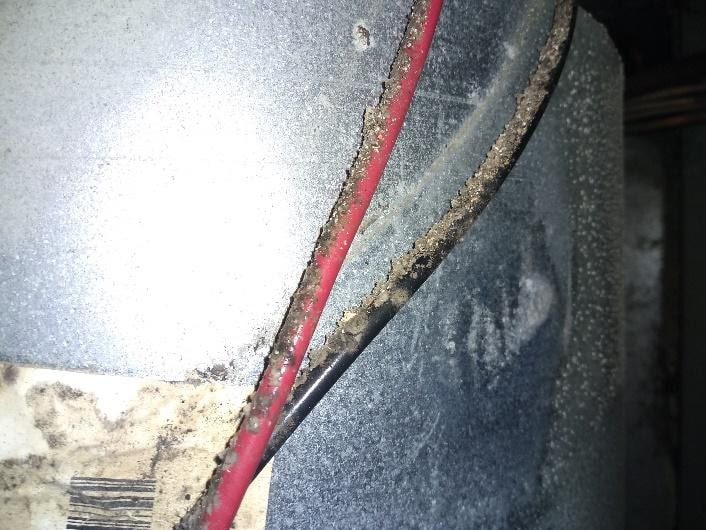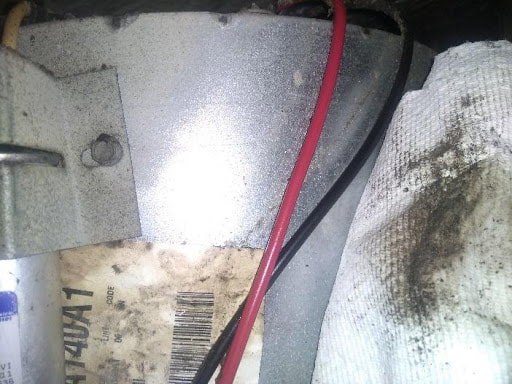|
by Kevin Butterhof I purchased a home warranty plan through Amazon Home Warranty (not affiliated with Amazon) with my new home back in October. The home I purchased had an 18-year-old heating system, so I knew a warranty would likely be an advantageous buy. Amazon Home Warranty came to my attention as they had over 4 stars on their Google reviews. I called them up, and a sales representative told me that after a 30-day waiting period, my 18 year old heating system would be covered and repaired or replaced should a failure or malfunction occur with no in-home inspection required. I was further lured by the salesman who told me I could cancel my plan at any time and get a pro-rated refund on the months not used if I so wished.
After about a week of almost daily calls, I was told that my unit was not covered since the failure occurred due to a lack of maintenance. I asked them on what grounds they could make such a determination and I was informed that the pictures I had sent of the unit had wires that were covered in dust and dirt. I immediately called the technician the company had sent to my home, and asked if there was any indication that the unit had been improperly maintained. The technician said no and clarified the unit had stopped working due to normal wear and tear. With this information, I called back into Amazon Home Warranty and spoke with a manager to ask that they honor our contract, but was still told the claim was denied. After asking to speak with the Manager’s manager, I was transferred to the Vice President, Gary Ojeda. The previous people I spoke with over the phone had been difficult yet polite, but the conversation with Mr. Ojeda was much different. As I was explaining how an 18-year-old unit with dirty wires was not indicative of an improperly maintained system, he repeatedly interjected “DENIED” and refused to listen. I informed him if he did not honor our contract, that I would take legal action, which he essentially dared me to do. I asked for something in writing, either a letter or an email, explaining exactly why my claim was denied, and Mr. Ojeda told me the purchase agreement WAS my something in writing. Defeated, I got off the phone with Mr. Ojeda and called back in to Amazon Home Warranty to cancel my contract and get a pro-rated refund for the portion of the term not used. I had been covered for 7 out of the 36 months purchased (~20%), so figured I would be refunded 80% of my initial payment (~$1087), minus a cancellation fee. Instead, I was offered $321. They explained to me that, even though I purchased the three-year option because of the better rate, they could only give me a pro-rated refund based on the standard rate. Additionally, they charged me a $30 cancellation fee for every term (12 months), or $90 total since I purchased 3 terms. On top of that, they charged me $435 dollars for their supposed costs incurred due to my claims. The only claims I made were for the heating system, which they did nothing to fix, and a drain that needed to be replaced in my sink a few months prior, which I paid $120 out of pocket as a deductible. This leaves a multi thousand-dollar repair on my plate and out over $1000. After all this I reported Amazon Home Warranty to the Better Business Bureau where I found numerous complaints against the company almost identical to mine. This left me wondering if I had really looked up the right company months ago with better than 4-star ratings. I looked a bit further and found the company did in fact have 4-star ratings on Google, but simultaneously had 1-star ratings on Yelp. How can there possibly be such a large discrepancy between a company’s ratings on two different review cites? It is safe to say there is something fishy going on with their reviews. When I reached out to Amazon Home Warranty to document their cancellation fee practice for this piece, and after I had threatened legal action, I was by told Mr. Ojeda that their had been a “miscalculation” in my refund and that I would receive $550 rather than the originally quoted $321. When I asked for a break-down of this new number, the proration based on the non-discounted rate for my policy was conspicuously absent. A miscalculation occurs when numbers are computed improperly. This was not a computational error, but rather a standard policy decision from the top that Mr. Ojeda likely knew would be difficult to defend in an arbitration or mediation proceeding. The $321 I was offered was an act of deception, not a good-faith mistake.
While reviewing my legal options to correct this mess, I looked a bit closer into their contract and found the most deceptive part of their business practices yet. Their contract states that all disputes must be resolved through the American Arbitration Association’s “Commercial Mediation Rules”. Through these rules, the entity filing the dispute must pay $1725 in fees at a minimum. The contract further states that any awards granted shall be capped at a maximum $1500, leaving a successful litigant out $225 at a minimum for winning their case. The Commercial Mediation rules are intended for disputes between two commercial entities, not a commercial entity and a consumer. For that, the American Arbitration Association has a different set of rules that requires a flat fee of $200 from the consumer. Because the contract prohibits mediation through the Consumer Arbitration rules, Amazon Home Warranty effectively makes recourse contractually impossible. Deceit is the perfect word to describe Amazon Home Warranty’s business practices, from their ratings, to their promises, to their contract. So, buyer beware should you be lured by Amazon Home Warranty’s deceitful facade.
2 Comments
|
Archives
July 2024
|
Love You Dreaddi | Stopwatch Creative | Colaeb | It's Bigger Than Business Podcast | Terms of Use | Submit | Est. 2014







